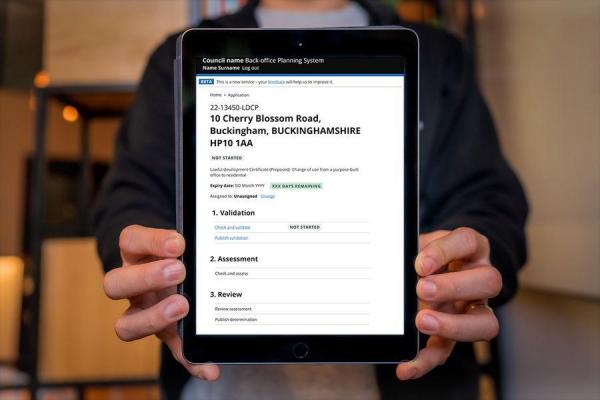Our progress so far
Local authorities benefit from feedback and metrics that support the continuous improvement of the services - these show that processing time and numbers of invalid applications are steadily falling since adopting our products.
Council officers are learning new digital and data skills through their involvement in Open Digital Planning. They are applying these skills in practice and learning from colleagues in other partner organisations. They also have access to key learning sessions that cover topics such as user research, content design and human-centred design.
By 2025
Open Digital Planning will be a community of users that has adopted multiple products that greatly improve the planning application process for applicants and officers.
Key deliverables:
- a proven way of scaling planning services to large numbers of local planning authorities in England
- a service that can process most types of householder planning application
- a user experience that’s simpler and more accessible
- local authorities receive better quality applications when using our products - so fewer invalid applications and less admin work
- more data and digital skills for planners and efficient ways of working enabled by better software
- growing adoption of our products by local authorities aided by a clear adoption path and evidence of measurable benefits
- Open Digital Planning becomes a legal entity that oversees transparently priced products that are financially sustainable and continuously improved
By 2033
Open Digital Planning will be at the centre of an ecosystem of advanced digital planning services that underpin England's digital and data-led planning system.
Key deliverables:
- Open Digital Planning is a coordination point for a community of forward-thinking individuals and organisations in the built environment sector
- Open Digital Planning-supported services in live use for the majority of local authority-built environment services
- applicant experience is simple and convenient - accurate planning applications are submitted no matter which software is used
- local authorities benefit from extensive automation, eliminating admin work where possible. Officer time is therefore spent on high-value work, such as major and strategic schemes, plan-making and better resident engagement
- all planning data is standardised across the country and accessible by the public, tech companies and public bodies
- planning decisions are informed by data insights
- planners form part of a forward-thinking and digitally capable profession that people want to work in
- other software providers sell planning services software
